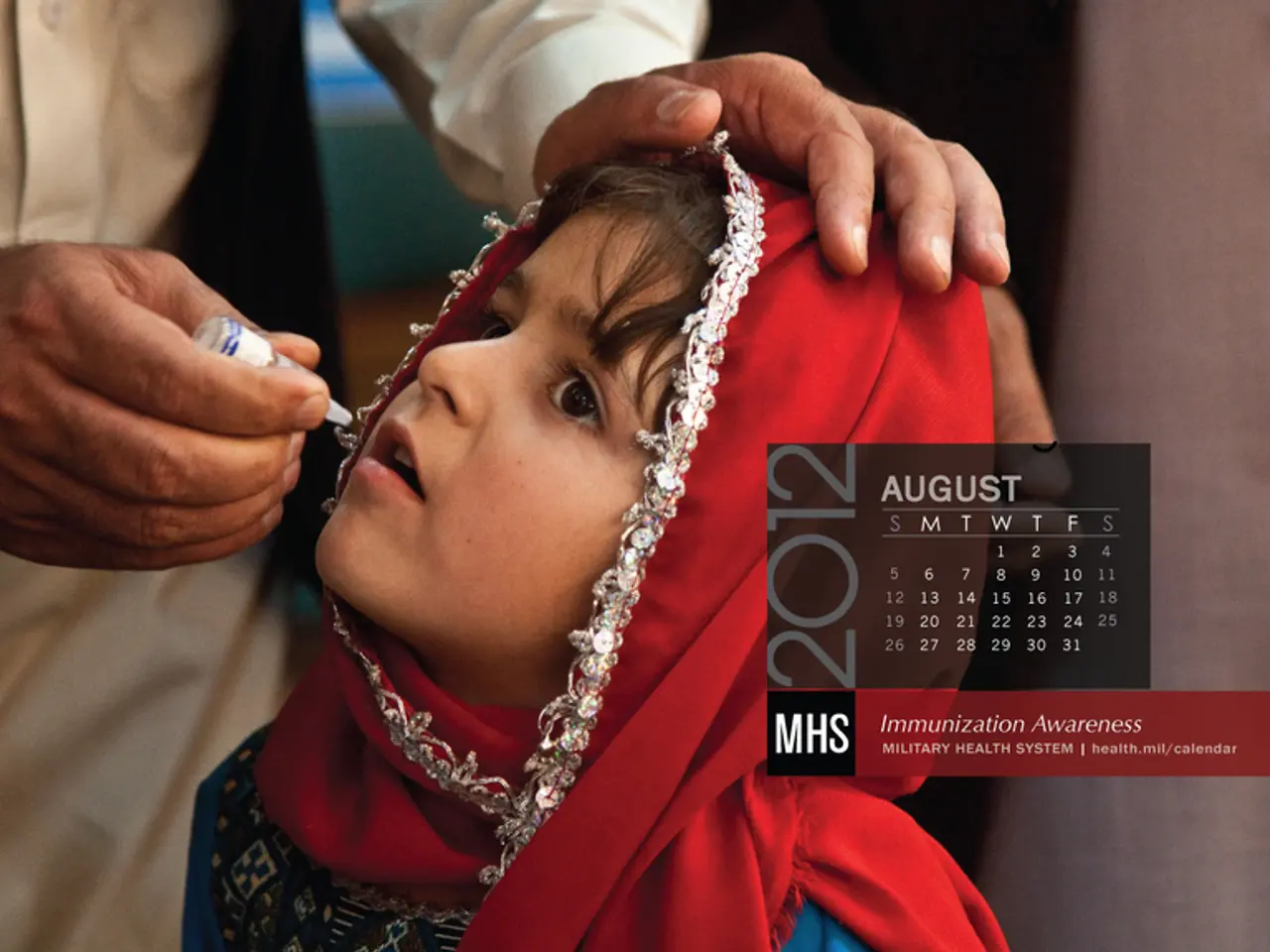Connection between COVID-19 and HIV: Insights into vaccines and further aspects
People living with HIV (PLWH) are generally more susceptible to COVID-19 due to compromised immune systems. However, the relationship between HIV and COVID-19 is complex and influenced by various factors.
Immune Response and Antibody Titers
PLWH tend to have weaker immune responses to SARS-CoV-2 compared to those without HIV, especially if their HIV viral load is not well controlled. Vaccination significantly improves immune responses in PLWH, with booster doses resulting in the highest antibody levels. Over time, repeated Omicron reinfections appear to reduce differences in antibody levels among PLWH, highlighting the importance of booster vaccination and ongoing monitoring of immune status in this group.
Co-infection Dynamics
Mathematical models show that HIV and COVID-19 can coexist within a population under certain thresholds related to their reproduction numbers. Interventions combining COVID-19 measures (vaccination, face masks, public awareness) and HIV prevention (condom use) are important to control the spread of both infections simultaneously.
Clinical Outcomes and Mortality
Despite concerns about poorer outcomes, some studies during the COVID-19 pandemic observed no significant increase in mortality among PLWH with advanced HIV disease when adaptive healthcare strategies were implemented to maintain treatment continuity. A lower mortality rate was observed among those with viral load suppression compared to non-suppressed individuals.
Healthcare Disruptions and Care Engagement
COVID-19 pandemic-related disruptions initially affected HIV care delivery, but telehealth and other adaptations helped mitigate negative effects on engagement and clinical outcomes.
Treatment and Preventive Measures
Some COVID-19 treatments can interfere with antiretroviral therapy (ART), but there are no known interactions between ART and COVID-19 prevention medication, such as Evusheld. People with HIV should practice preventive measures against COVID-19, including maintaining good hygiene, avoiding large gatherings, wearing a cloth face mask, and staying away from individuals with suspected or confirmed COVID-19.
Course of COVID-19 in People with HIV
Treatment for COVID-19 in people with HIV must begin within the first few days of infection to be effective. The lungs may take longer to recover from the effects of COVID-19 in people with HIV due to a delayed SARS-CoV-2-specific antibody response by the body's immune system.
Risk of Severe COVID-19 Illness
The risk of severe COVID-19 illness for those with HIV is greater than in people without HIV, especially for older individuals, those with lower CD4 cell counts, and those with an ineffective HIV treatment regimen.
Opportunistic Infections
People with HIV, particularly those without viral suppression, have an increased risk of developing opportunistic infections due to various germs.
Vaccination and Boosters
Experts recommend COVID-19 vaccines for everyone with HIV, regardless of their CD4 count or viral load. Everyone, including people with HIV, should receive a booster shot if they are eligible.
Symptoms of COVID-19 in People with HIV
Symptoms of COVID-19 in people with HIV are similar to those in people without HIV and can include cough, fever, chills, breathing problems, fatigue, muscle aches, headache, loss of taste, loss of smell, sore throat, congestion or runny nose, nausea, vomiting, and longer periods of fever.
Seeking Medical Attention
If someone with HIV tests positive for COVID-19 or experiences related symptoms, they should contact a doctor as soon as possible.
In summary, while people with HIV may have a reduced initial immune response to COVID-19, particularly if HIV is not well controlled, vaccination helps bridge this gap. Clinical outcomes depend substantially on HIV viral suppression and access to continuous care. Optimized interventions for both infections can effectively reduce the burden of co-infection.
- People with HIV (PLWH) may have a weaker immune response to SARS-CoV-2 compared to those without HIV, with the response being particularly weak if their HIV viral load is not well controlled.
- Vaccination significantly improves immune responses in PLWH, with booster doses resulting in the highest antibody levels.
- Over time, repeated Omicron reinfections appear to reduce differences in antibody levels among PLWH, highlighting the importance of booster vaccination.
- HIV and COVID-19 can coexist within a population under certain thresholds related to their reproduction numbers.
- Interventions combining COVID-19 measures (vaccination, face masks, public awareness) and HIV prevention (condom use) are important for controlling both infections simultaneously.
- Some studies during the COVID-19 pandemic observed no significant increase in mortality among PLWH with advanced HIV disease when adaptive healthcare strategies were implemented to maintain treatment continuity.
- A lower mortality rate was observed among those with viral load suppression compared to non-suppressed individuals.
- HIV care delivery was initially affected by the COVID-19 pandemic-related disruptions, but telehealth and other adaptations helped mitigate negative effects on engagement and clinical outcomes.
- Some COVID-19 treatments can interfere with antiretroviral therapy (ART), but there are no known interactions between ART and COVID-19 prevention medication, such as Evusheld.
- People with HIV should practice preventive measures against COVID-19, including maintaining good hygiene, avoiding large gatherings, wearing a cloth face mask, and staying away from individuals with suspected or confirmed COVID-19.
- Treatment for COVID-19 in people with HIV must begin within the first few days of infection to be effective.
- The risk of severe COVID-19 illness for those with HIV is greater than in people without HIV, particularly for older individuals, those with lower CD4 cell counts, and those with an ineffective HIV treatment regimen.
- The lungs may take longer to recover from the effects of COVID-19 in people with HIV due to a delayed SARS-CoV-2-specific antibody response by the body's immune system.
- People with HIV, particularly those without viral suppression, have an increased risk of developing opportunistic infections due to various germs, highlighting the importance of continuous care for HIV management.




